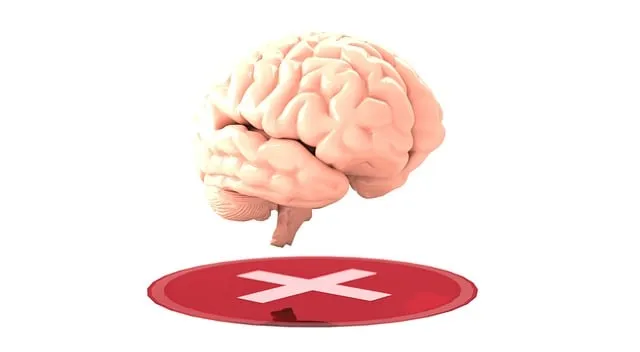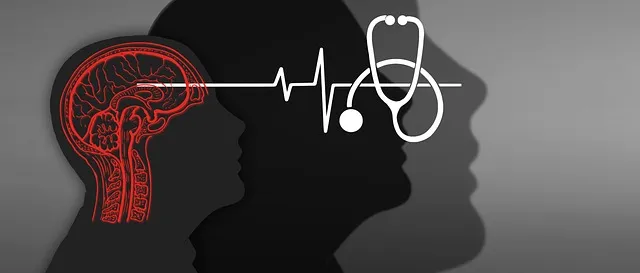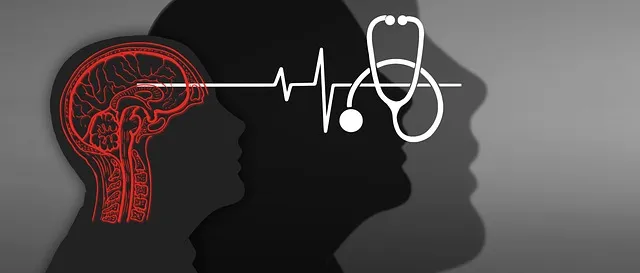The Northglenn Kaiser Permanente Mental Health Access Center offers comprehensive crisis intervention team (CIT) training, empowering community members with self-awareness and emotional intelligence tools. Their programs focus on risk assessment, de-escalation, trauma support, and cultural sensitivity, ensuring competent mental health care. Through interactive workshops, case studies, and role-playing, participants gain practical skills for managing crises. Continuous improvement is prioritized through feedback collection and data analysis, integrating best practices like Mood Management and Mental Wellness Journaling into their training curriculum.
In today’s challenging landscape, effective crisis intervention teams (CITs) are crucial for healthcare organizations like the Northglenn Kaiser Permanente Mental Health Access Center. This article explores CIT training programs, focusing on their role in enhancing crisis response capabilities. We delve into key components of successful programs and strategies for engaging participants at the Northglenn Center. Additionally, we discuss measuring success and implementing continuous improvement to ensure optimal mental health support during crises.
- Understanding Crisis Intervention Teams: A Northglenn Kaiser Permanente Mental Health Access Center Perspective
- The Role and Importance of Training in Crisis Response
- Key Components of Effective Crisis Intervention Team Programs
- Implementing Training: Strategies for Engaging Participants at the Northglenn Center
- Measuring Success and Continuous Improvement in Crisis Intervention Training
Understanding Crisis Intervention Teams: A Northglenn Kaiser Permanente Mental Health Access Center Perspective

At Northglenn Kaiser Permanente Mental Health Access Center, we firmly believe that equipping individuals with the right tools and knowledge can make a significant difference in managing and resolving crises effectively. Our crisis intervention team training programs are designed to foster a culture of support and resilience within communities. Through these initiatives, we aim to empower participants with the necessary skills to recognize and respond to mental health emergencies sensitively and competently.
The programs emphasize self-awareness exercises and inner strength development as foundational components for crisis intervention. By promoting emotional intelligence and understanding, our guidance enables individuals to de-escalate tense situations while offering evidence-based strategies for supporting those in distress. These interventions are crucial in ensuring the well-being of both the affected individual and those providing assistance.
The Role and Importance of Training in Crisis Response

Effective crisis intervention requires well-trained professionals equipped to handle sensitive situations with care and expertise. Training programs play a pivotal role in equipping mental health practitioners at facilities like the Northglenn Kaiser Permanente Mental Health Access Center to respond swiftly and competently during crises. These programs delve into crucial aspects such as risk assessment, de-escalation techniques, and trauma support services, ensuring staff are prepared for various scenarios.
Comprehensive training fosters cultural sensitivity in mental healthcare practice, enabling professionals to understand and address the unique needs of diverse populations. By enhancing public awareness campaigns development and incorporating evidence-based strategies, these programs contribute to better crisis management outcomes. Ultimately, this ensures that individuals seeking support at centers like Northglenn Kaiser Permanente receive timely, effective, and culturally sensitive care during their most vulnerable moments.
Key Components of Effective Crisis Intervention Team Programs

Effective crisis intervention team (CIT) programs are meticulously designed to equip healthcare professionals with essential skills to handle mental health crises. A key component is mental health awareness training, ensuring CIT members can recognize and understand various mental health conditions. This includes learning about warning signs, risk factors, and the impact of trauma, which is crucial for providing timely and appropriate interventions.
The Northglenn Kaiser Permanente Mental Health Access Center highlights the importance of community outreach program implementation. By reaching out to diverse communities, these programs bridge the gap in mental health access, fostering trust and encouraging individuals to seek help during crises. Moreover, confidence-boosting techniques are integral to CIT training, empowering team members to confidently assess situations, make critical decisions, and offer effective support while maintaining their own well-being.
Implementing Training: Strategies for Engaging Participants at the Northglenn Center

Implementing training programs at the Northglenn Kaiser Permanente mental health access center requires strategic approaches to engage participants effectively. The Northglenn Center, renowned for its Trauma Support Services, understands that crisis intervention team (CIT) training is a vital tool in improving mental health access and support within the community. Therefore, their CIT training programs are designed to be interactive and immersive, catering to diverse learning styles.
Incorporating self-care practices into the curriculum is a key strategy. By teaching participants about risk assessment for mental health professionals, they not only enhance their ability to assist others but also foster a sense of personal resilience. Interactive workshops, case studies, and role-playing scenarios ensure that learning is not just theoretical but also practical, reflecting real-life situations often encountered by mental health professionals at the Northglenn Kaiser Permanente center.
Measuring Success and Continuous Improvement in Crisis Intervention Training

Measuring success in crisis intervention training is an ongoing process that ensures programs evolve to better support individuals seeking mental health assistance. At Northglenn Kaiser Permanente Mental Health Access Center, we utilize a multi-faceted approach to gauge effectiveness. This involves collecting qualitative and quantitative data through post-training feedback forms, participant observations, and periodic check-ins with trainees to assess their practical application of learned skills.
By analyzing this data, our team identifies areas where the program excels and spots opportunities for enhancement. For instance, integrating Mood Management techniques into Social Skills Training has shown promising results in improving participants’ ability to de-escalate situations. Additionally, introducing Mental Wellness Journaling Exercise Guidance as a complementary practice has encouraged self-reflection and enhanced coping strategies. This continuous improvement process is vital to ensuring our crisis intervention training remains relevant, effective, and aligned with best practices in mental health support.
Crisis intervention team training, as demonstrated by the Northglenn Kaiser Permanente Mental Health Access Center, is a vital program that equips healthcare professionals with essential skills to navigate and de-escalate crisis situations. By focusing on comprehensive training that includes role-playing scenarios, evidence-based practices, and continuous improvement, these programs can significantly enhance patient outcomes and foster a safer, more supportive environment. The Northglenn Center’s approach emphasizes the importance of tailored strategies, ensuring participants actively engage in learning, which is key to building effective crisis intervention teams. Through ongoing evaluation and adaptation, such training programs can revolutionize mental health support, making them indispensable resources in today’s healthcare landscape.






